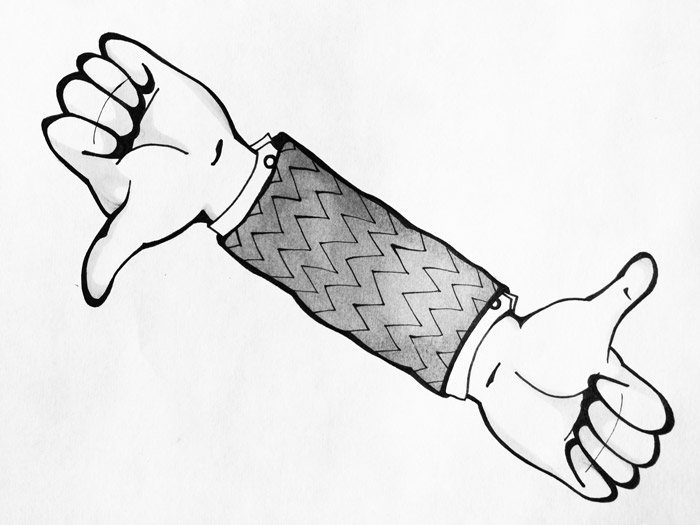The wounds of rejection cut deep, especially when they come by surprise. Because the end of the school year is a time when many McGill students are waiting to hear back from jobs, internships, and graduate schools, it can be comforting to know that many people are facing the same struggles.
According to Guy Winch, author and psychologist, the feeling of rejection is often associated with the feeling of physical pain, as these experiences activate the same areas of our brain. Though this is a time to be optimistic about future plans, denial from jobs, internships, and schools is common and leaves many students feeling discouraged.
Starting university is an incredible new beginning, however, determining which university to attend for undergraduate or graduate studies leaves many students grappling with rejection from their first-choice school. Eliza Snodgrass, U0 Arts, dealt with this before deciding to come to McGill for her undergraduate degree. It was particularly difficult because she became very attached to a school to which she was ultimately not accepted.
“I had fantasized about what I would do once I got [to my first-choice school, the University of Southern California (USC)] and had put so much emphasis on how important it was for me to go there,” Snodgrass said. “I truly felt like I deserved to get in because I worked so hard. I really tried to show them how much I wanted to go there and how much I cared, I mean, I slept in the T-shirt every single night.”
Snodgrass explained that the pain of that the reactions of others were more painful than what she was experiencing herself.
“[My friends and family] kept asking me how I was doing and for some reason everyone kind of expected me to be more upset than I was,” Snodgrass said. “It made sense, but I think people’s reactions were almost harder to deal with than the actual rejection.”
In dealing with the disappointment of not being accepted, it’s important to remember the silver lining in every outcome. In Snodgrass’ case, she is now loving Montreal and has adopted many leadership roles, such as Vice-President (VP) External of McConnell Hall residence council and Student Ambassador at McGill.
Rejections of all kinds are difficult to deal with, but they are always more difficult when they come from a community a person is already involved in that he or she trusts and cares about deeply. This type of rejection is much more personal, as it causes someone to doubt themselves, their abilities, and their circle of friends or colleagues. In the case of Sofia Harrison, a first-year Science student at the University of Toronto, she experienced these feelings after being rejected from a position at her childhood summer camp.
“I had known of many people who had not been asked to return as counsellors, but had never imagined myself to be in that position,” Harrison said. “So after my tenth amazing summer at camp, I was completely bewildered when I received a letter indicating that I was not chosen to follow the only path I had only ever imagined myself taking.”
Both Harrison and Snodgrass’ stories demonstrate how much harder rejection can feel when one is not expecting it. For Harrison, the aspect of jealousy towards those of her friends who got the opportunity she wished to have made dealing with it the hardest.
“One of the hardest parts of the day I got rejected was the buildup,” Harrison said. “All day I had been getting texts and snapchats from my friends getting in and telling me to rush home to open up my letter. We were all sure I would get in. Once I got home and opened the letter only to see I had been rejected, I felt like a failure, and I felt like I would lose all my friends.”
Although Harrison’s experience was jarring and difficult to overcome, it forced her to find her own new beginning. She has spent her past two summers working at an art camp and now can’t wait to return for her third.
“I think it’s important to maintain a good outlook and know that everything happens for a reason,” Harrison said. “[….] I can’t let the fact that I didn’t get a position working there ruin a whole lifetime of memories for me.”
Although rejection can feel heartbreaking, it is a way to break free from what is expected and open ourselves up to new beginnings. Maybe not getting what we’ve planned is meant to remind us that the world is so much more than just one single path. Rejection is a way to gain a new perspective, to reflect on ways to improve, and to eventually grow thicker skin. In this sense, it’s important to remember that people’s defeats do not define who they are as a person, but help them evolve.








